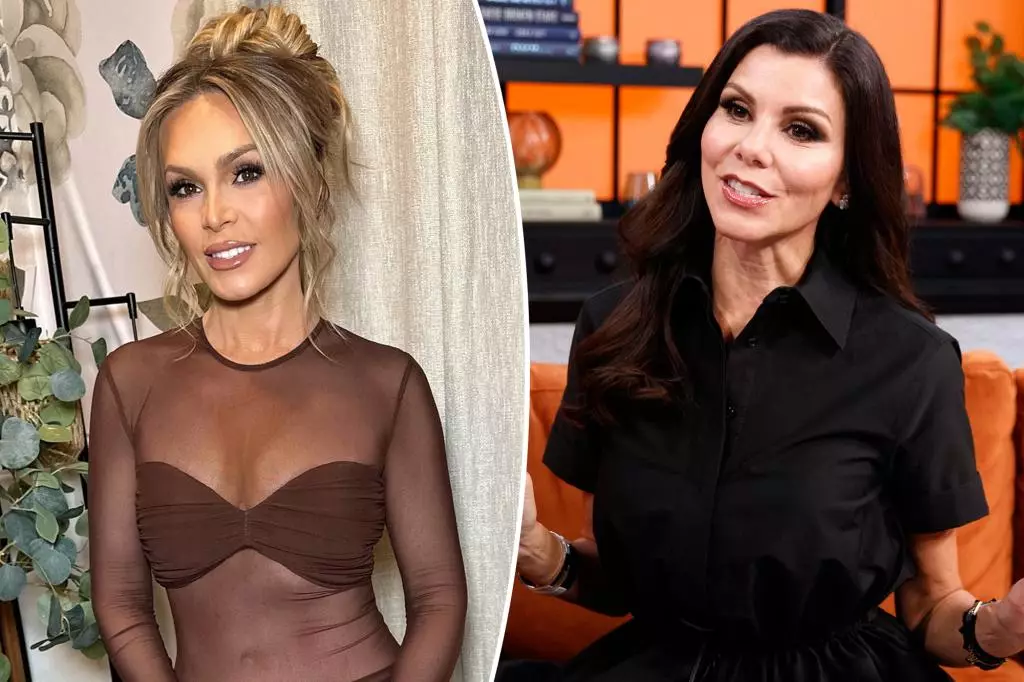Reality TV, often dismissed as superficial entertainment, masks a complex web of personal conflicts, rumors, and reputational vulnerabilities. The recent controversies within “The Real Housewives of Orange County” exemplify how easily perceptions can be distorted and manipulated behind the scenes. When Heather Dubrow expressed her bewilderment over the allegations involving Tamra Judge and Gretchen Rossi, it was a stark reminder that viewers only see a fraction of the truth—a curated version shaped by editing, selective storytelling, and interpersonal agendas. Dubrow’s perspective highlights an essential truth: that without full context, even well-intentioned viewers are susceptible to misunderstandings. The allegations, whether true or false, reveal how fragile the fabric of trust and camaraderie becomes when subjected to gossip and rumor-mongering.
The Power of Allegory and Gossip in Shaping Narratives
The rumor surrounding the supposed “roofied” incident gripping the cast underscores how a single unverified claim can escalate into a defining storyline. The fact that such explosive accusations can circulate within a tightly knit group, fueled by alleged conversations with “bloggers,” demonstrates the potent influence of media and social gossip. When Rossi vehemently denies the incident and distances herself from the allegations, she challenges the narrative spun by others, implying that gossip is often more fiction than fact. Yet, the fact that these rumors impact cast relations and even lead to a temporary departure from the show reveals how dangerous and destructive unsubstantiated claims can be. This underscores a critical flaw of reality TV: it’s as much about narrative construction as it is about authentic life, often blurring truth and fiction into a confusing tableau that viewers are compelled to interpret.
The Impact of Media and Personal Bias on Cast Dynamics
The feud-driven environment within “RHOC” serves as an example of how personal biases and the desire for public attention can distort relationships. Tamra Judge’s decision to step back from the show superficially appears as a reaction to personal betrayal, but it is also a reflection of the intense scrutiny cast by ongoing conflicts. Heather Dubrow’s disappointment in Katie Ginella indicates how quickly alliances shift and how fragile friendships become amid chaos. Dubrow’s critique of Ginella’s on-screen persona reveals a battle not just of personalities but of authenticity and integrity. For viewers, this dynamic should serve as a cautionary tale: the portrayal of these women is filtered through editors’ choices, often emphasizing conflict over genuine connection, which can mislead audiences into oversimplified judgments.
The Reality of Self-Reflection in the Face of Public Scrutiny
A critical perspective involves recognizing that even those within the industry are not immune to self-criticism. Heather Dubrow’s reflections show a level of awareness about her own role in this intricate web—she admits disappointment in her colleagues’ actions and laments what she perceives as missed opportunities for authentic connection. This critical stance hints at a broader reflection: that the entertainment industry often rewards sensationalism, perhaps at the expense of truth and personal growth. If cast members, or even viewers, could adopt a more introspective approach, perhaps the culture of gossip and betrayal could be mitigated. Instead of focusing solely on spectacle, there is value in acknowledging the human flaws that lead individuals to act out, argue, or betray trust—especially when personal reputations are on the line.
The Paradox of Public Persona and Private Reality
Ultimately, the controversy within “RHOC” exemplifies the paradox faced by reality TV personalities: Their public personas are meticulously crafted, yet deeply intertwined with their private realities. Heather Dubrow’s honest critique underscores that behind the glamorous façades, real emotions and conflicts simmer beneath the surface. It raises a vital question: how authentic can someone truly be within a paradigm that rewards conflict and sensationalism? The cast’s struggles and accusations expose the tension between genuine relationships and the performative nature of reality TV. For viewers, understanding this dichotomy encourages a more nuanced appreciation—not just of these women’s lives, but of how reality itself is often reshaped to fit a narrative designed for entertainment, often at the expense of truth.

